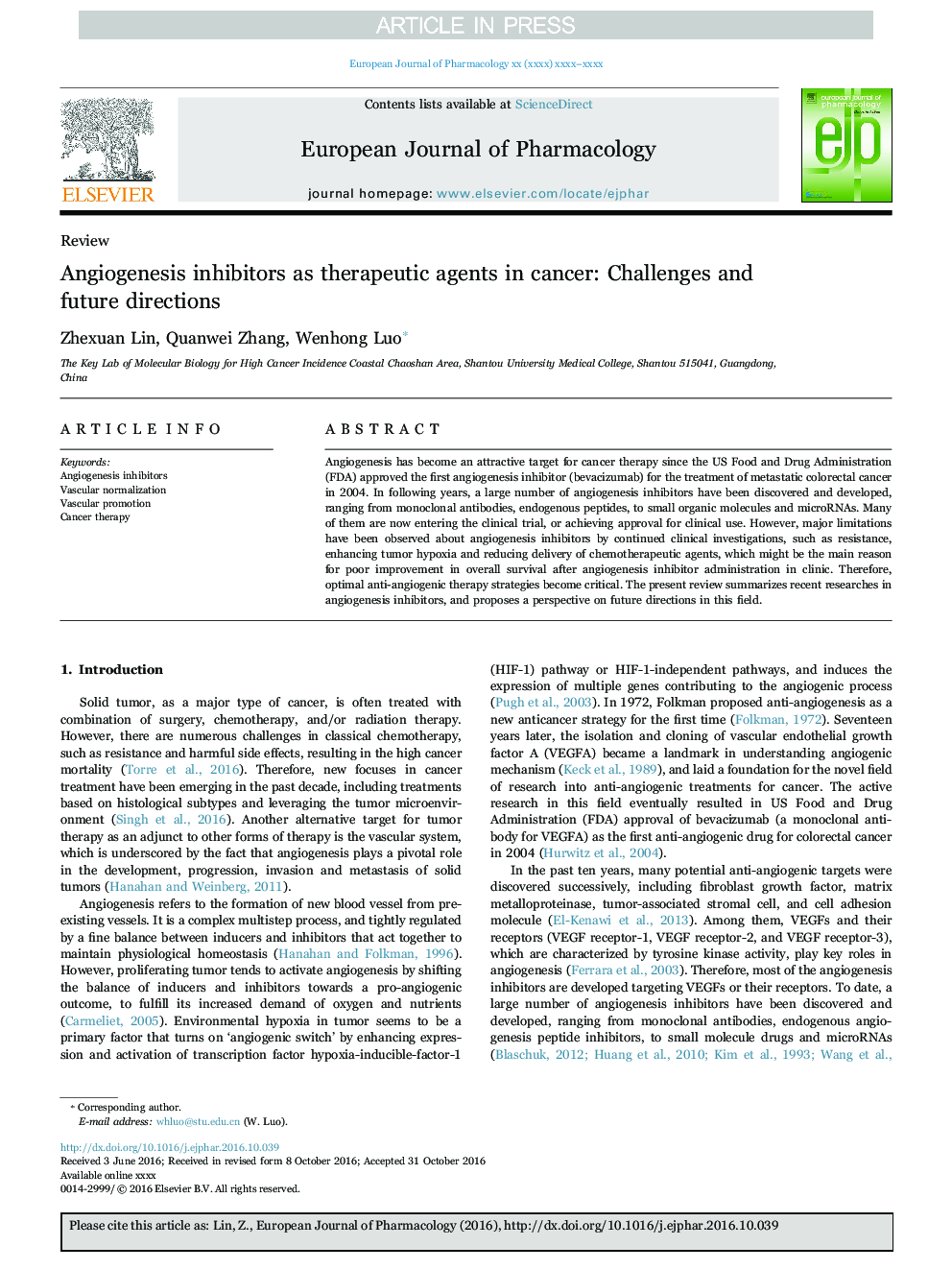| Article ID | Journal | Published Year | Pages | File Type |
|---|---|---|---|---|
| 5554762 | European Journal of Pharmacology | 2016 | 6 Pages |
Abstract
Angiogenesis has become an attractive target for cancer therapy since the US Food and Drug Administration (FDA) approved the first angiogenesis inhibitor (bevacizumab) for the treatment of metastatic colorectal cancer in 2004. In following years, a large number of angiogenesis inhibitors have been discovered and developed, ranging from monoclonal antibodies, endogenous peptides, to small organic molecules and microRNAs. Many of them are now entering the clinical trial, or achieving approval for clinical use. However, major limitations have been observed about angiogenesis inhibitors by continued clinical investigations, such as resistance, enhancing tumor hypoxia and reducing delivery of chemotherapeutic agents, which might be the main reason for poor improvement in overall survival after angiogenesis inhibitor administration in clinic. Therefore, optimal anti-angiogenic therapy strategies become critical. The present review summarizes recent researches in angiogenesis inhibitors, and proposes a perspective on future directions in this field.
Related Topics
Life Sciences
Neuroscience
Cellular and Molecular Neuroscience
Authors
Zhexuan Lin, Quanwei Zhang, Wenhong Luo,
